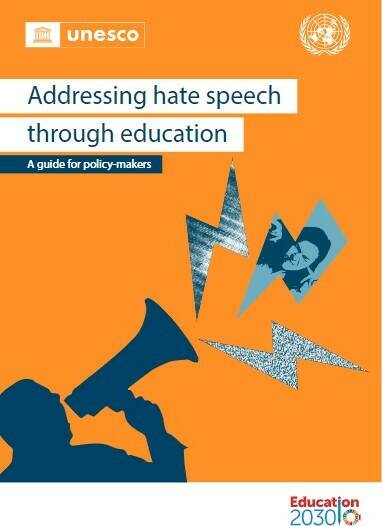Addressing Hate Speech through Education – a guide for policy makers.
Hate speech is spreading faster and further than ever before as a result of social media user growth and the rise of populism. Both online and offline, hate speech targets people and groups based on who they are.
The guide
Hate speech has the potential to ignite and fuel violence, spawn violent extremist ideologies, including atrocity crimes and genocide. It discriminates and infringes on individual and collective human rights, and undermines social cohesion.
Countering harmful, discriminatory and violent narratives requires interventions at every level of education, in both formal and non-formal settings. This guide offers concrete recommendations, good practices and lessons learned on how to combat hate speech and provide safe and respectful learning environments, as well as the broader goal of fostering inclusive societies.




